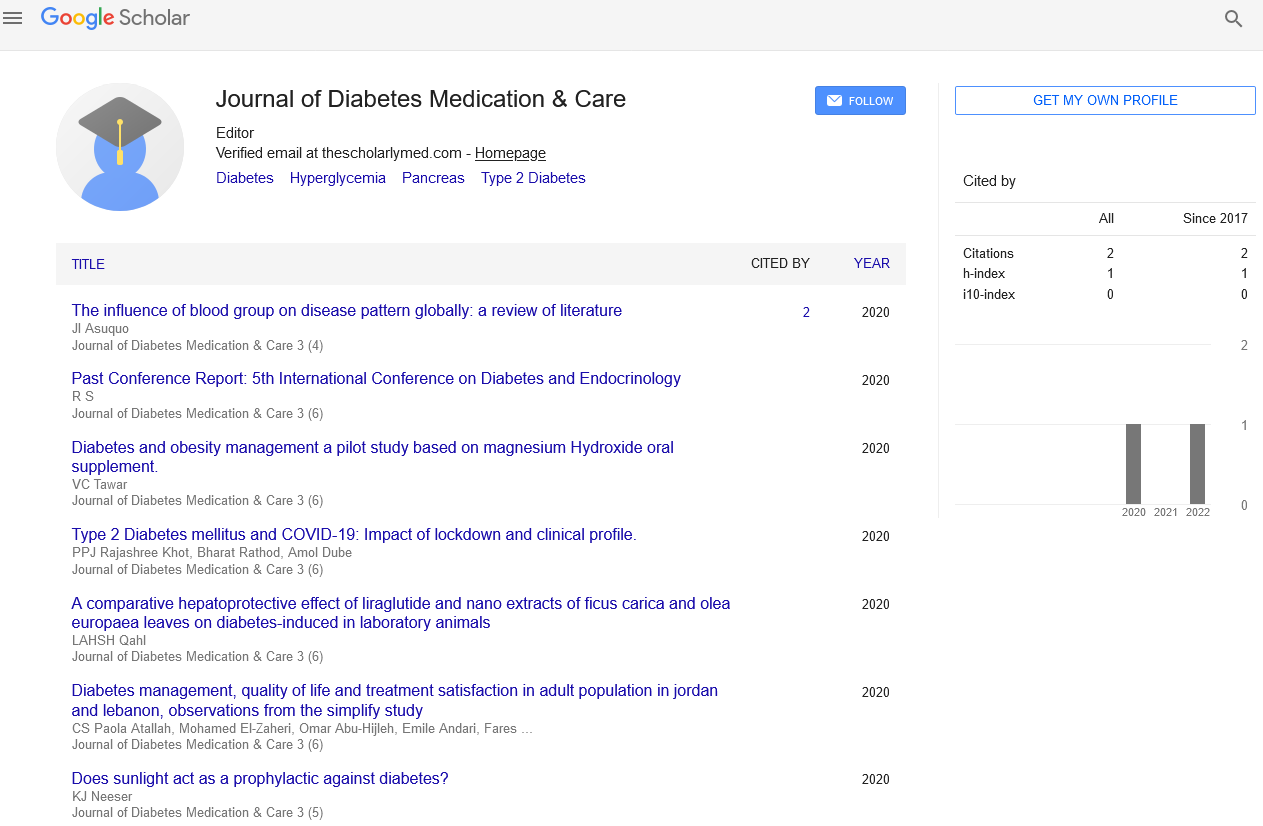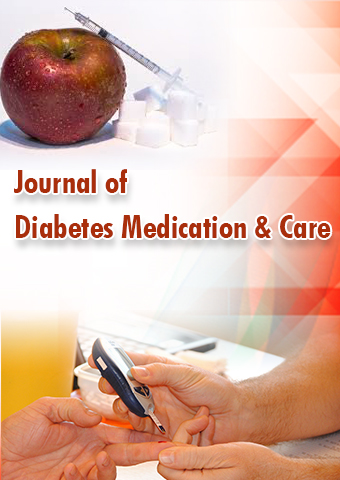Opinion Article - Journal of Diabetes Medication & Care (2024) Volume 7, Issue 3
Harnessing Leptin: A Revolutionary Approach to Diabetes Treatment
- Corresponding Author:
- Hong Cheng
Department of Internal Medicine, Fudan University, Fudan, China
E-mail: hongcheng@caas.cn
Received: 03-May-2024, Manuscript No. JDMC-24-136451; Editor assigned: 06-May-2024, PreQC No. JDMC-24-136451 (PQ); Reviewed: 20-May-2024, QC No. JDMC-24-136451; Revised: 29-May-2024, Manuscript No. JDMC-24-136451 (R); Published: 07-Jun-2024, DOI: 10.37532/JDMC.2024.7(3).214-215
Introduction
In the realm of medical breakthroughs, the journey towards combating diabetes has been relentless. As science delves deeper into understanding the intricate mechanisms of metabolic disorders, a new frontier has emerged: Leptin therapy. Leptin, often referred to as the “satiety hormone,” holds promise as a revolutionary approach to not only managing but potentially reversing diabetes. This article explores the science behind leptin therapy, its potential implications in diabetes treatment, and the path forward in harnessing its transformative power.
Description
Understanding leptin
Leptin, derived from the Greek word “leptos,” meaning thin, was discovered in 1994 by Jeffrey M. Friedman and his research team. It is primarily produced by adipose tissue and plays a crucial role in regulating energy balance by signalling satiety to the brain. The discovery of leptin initially sparked hope for a miraculous cure for obesity. However, subsequent research revealed a more nuanced role for leptin in metabolic disorders, including diabetes.
The link between leptin and diabetes
Diabetes, characterized by elevated blood sugar levels, results from either insufficient insulin production (Type 1 diabetes) or the body’s inability to respond effectively to insulin (Type 2 diabetes). While insulin is the primary focus of diabetes management, emerging evidence suggests that leptin dysfunction may also contribute to the development and progression of the disease.
Leptin resistance, akin to insulin resistance, is a condition where the body’s cells become less responsive to the effects of leptin. This leads to a disruption in the feedback loop between adipose tissue and the brain, resulting in increased appetite, reduced energy expenditure, and ultimately weight gain-all hallmark features of type 2 diabetes.
The promise of leptin therapy
Leptin therapy holds immense promise as a novel approach to diabetes treatment. By replenishing or augmenting leptin levels in individuals with leptin deficiency or resistance, it aims to restore the body’s natural balance of energy regulation. While still in its early stages, several studies have demonstrated the potential efficacy of leptin therapy in improving glucose metabolism and insulin sensitivity in both animal models and human trials.
One notable example is the study conducted by Dr. Christos Mantzoros and his team at Harvard Medical School, where they administered recombinant leptin to individuals with congenital leptin deficiency. Remarkably, leptin replacement therapy resulted in significant improvements in insulin sensitivity, glycemic control, and body weight, offering new hope for those with leptin related metabolic disorders.
Challenges and considerations
Despite its promise, leptin therapy faces several challenges and considerations on the path to widespread clinical adoption. One such challenge is the variability in individual response to leptin treatment, influenced by factors such as genetic predisposition, baseline leptin levels, and lifestyle factors. Moreover, the long-term safety and efficacy of leptin therapy require further investigation through rigorous clinical trials.
Another consideration is the cost and accessibility of leptin therapy, particularly for individuals in low-resource settings or without adequate health insurance coverage. Addressing these barriers will be essential in ensuring equitable access to this potentially life-changing treatment modality.
Future directions
As research into leptin therapy continues to evolve, several avenues warrant exploration to unlock its full therapeutic potential. This includes refining treatment protocols to optimize dosing and administration methods, identifying biomarkers to predict patient response, and investigating combination therapies that synergize with leptin to enhance metabolic outcomes.
Moreover, ongoing efforts to elucidate the underlying mechanisms of leptin resistance and its role in diabetes pathophysiology will provide valuable insights into patient selection and personalized treatment approaches. Collaborative initiatives involving researchers, clinicians, industry partners, and patient advocacy groups will be instrumental in advancing the field of leptin therapy towards clinical translation.
Conclusion
In the quest to conquer diabetes, leptin therapy stands out as a beacon of hope, offering a paradigm shift in our approach to metabolic disorders. By harnessing the power of leptin, we have the potential to revolutionize diabetes treatment, paving the way for improved outcomes and enhanced quality of life for millions worldwide. As we embark on this transformative journey, let us seize the opportunity to unlock the full therapeutic potential of leptin and usher in a new era of personalized medicine in the fight against diabetes.

